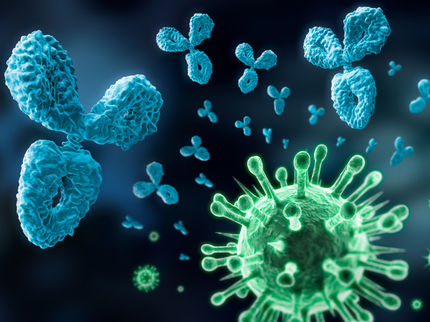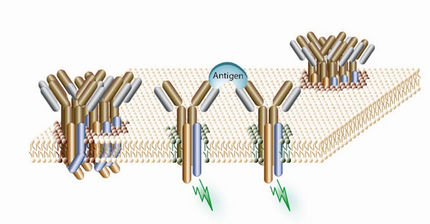Two new antibodies found to cripple HIV
HIV Findings reveal an Achilles heel on the virus for AIDS vaccine researchers to exploit
Advertisement
Researchers at and associated with the International AIDS Vaccine Initiative (IAVI), at The Scripps Research Institute, and at the biotechnology companies Theraclone Sciences and Monogram Biosciences have discovered two powerful new antibodies to HIV that reveal what may be an Achilles heel on the virus. They published their work in Science.
Researchers will now try to exploit the newfound vulnerability on the virus to craft novel approaches to designing an AIDS vaccine. Moreover, the global collaboration and process that led to the discovery of the two new broadly neutralizing antibodies (bNAbs) are likely to produce more such antibodies, which may in turn reveal additional vulnerabilities of HIV, adding still more vitality to the effort to develop a vaccine against AIDS.
"The findings themselves are an exciting advance toward the goal of an effective AIDS vaccine because now we've got a new, potentially better target on HIV to focus our efforts for vaccine design," said Wayne Koff, senior vice president of research and development at IAVI. "And having identified this one, we're set up to find more, which should further accelerate global efforts in AIDS vaccine development."
Broadly neutralizing antibodies to HIV are produced by a minority of HIV-infected individuals and are distinct from other antibodies to HIV in that they neutralize a high percentage of the many types of HIV in circulation worldwide. It is widely believed that to prevent HIV infection an AIDS vaccine would need to teach the body to produce these powerful antibodies before exposure to the virus. Animal experiments suggest that conceptually such a vaccine would work. Before this finding only four antibodies to HIV had been discovered that were widely agreed to be broadly neutralizing.
The two newly discovered bNAbs, called PG9 and PG16, are the first to have been identified in more than a decade and are the first to have been isolated from donors in developing countries, where the majority of new HIV infections occur. Moreover, previously identified bNAbs against HIV have functioned by binding to places on HIV that have proven difficult to exploit by means of vaccine design.
"These new antibodies, which are more potent than other antibodies described to date while maintaining great breadth, attach to a novel, and potentially more accessible site on HIV to facilitate vaccine design," said Dennis Burton, professor of immunology and microbial science and scientific director of the IAVI Neutralizing Antibody Center at The Scripps Research Institute in La Jolla, California. Professor Burton is also a member of the newly established Ragon Institute of MGH, MIT and Harvard. "So now we may have a better chance of designing a vaccine that will elicit such broadly neutralizing antibodies, which we think are key to successful vaccine development."
Breadth of neutralization is important because any effective AIDS vaccine must provide protection from a diverse range of the most prevalent types of HIV circulating worldwide. High potency suggests that such antibodies will not have to be produced by the body in very large quantities to confer protection.
The two new antibodies target a region of the viral spike used by HIV to infect cells. The viral spike glycoproteins, termed gp120 and gp41, are highly variable and have evolved to thwart immune attack. But biochemical studies suggest that PG9 and PG16 target regions of gp120 that do not change, which probably accounts for their breadth of neutralization. Now researchers at the IAVI-organized Neutralizing Antibody Consortium (NAC), a scientific network focused on designing vaccines capable of eliciting broadly neutralizing antibodies, will turn their attention to studying the molecular structure of PG9 and PG16 and that of the region they target on the HIV spike. They will use this information to try to devise immunogens that elicit similar antibodies.
Other news from the department science
Most read news
More news from our other portals
See the theme worlds for related content
Topic world Antibodies
Antibodies are specialized molecules of our immune system that can specifically recognize and neutralize pathogens or foreign substances. Antibody research in biotech and pharma has recognized this natural defense potential and is working intensively to make it therapeutically useful. From monoclonal antibodies used against cancer or autoimmune diseases to antibody-drug conjugates that specifically transport drugs to disease cells - the possibilities are enormous

Topic world Antibodies
Antibodies are specialized molecules of our immune system that can specifically recognize and neutralize pathogens or foreign substances. Antibody research in biotech and pharma has recognized this natural defense potential and is working intensively to make it therapeutically useful. From monoclonal antibodies used against cancer or autoimmune diseases to antibody-drug conjugates that specifically transport drugs to disease cells - the possibilities are enormous



















































